
Filling in the Gaps: Vendors, Libraries and Donors
The (Virtual) UC Library is Open!
Digital Scholarship Commons: Integrating thoughtful Zoom Settings into Online Workshops
Publishing on the Eve of a Pandemic
Explore Seeds and Where to Get your Copy
Science and Engineering Library Renovation
An Easy Way to Support the UC Santa Cruz Library
Dear Faculty, Staff, Students, and Donors,
I am writing to you from my home office, where I’ve been working (as have many of you) for the better part of two months. As we near the midpoint of our first quarter spent learning remotely, I want to update you on our efforts here at the University Library to support the work of our faculty, staff, and students at home.
Looking back at the onset of the lockdown, we tried to stay open for as long as possible to support our patrons during finals week. Soon it became apparent that it was no longer safe to stay open, so we were forced to close our doors during the week of March 16.
We had already been providing a significant portion of our content online for some time. We requested that our faculty contact the library to let us know what they needed, and in the meantime we could explore fast options, for example, adding more users to our existing online licenses.
The faculty adopted the new ways of remote instruction very quickly, and our staff responded in kind. The Metadata Services crew has been very creative, including getting access to Google scans through the Hathi Trust, which includes nearly everything Google scanned in the UC system, about ¾ of the Hathi Trust corpus. This is far more than we had in our local print collection and is a huge asset to our continued ability to serve our faculty and students remotely.
That said, with the University Library itself closed, I’m all too aware of how the community can no longer come in to take advantage of our holdings. In the past, anyone could come in to access our collections, and the facility served so many purposes—faculty club, student union, library, community hub. Now, with online-only access, we can no longer serve those purposes. I consider this a great loss, and I look forward to the day that we can fully open our doors again.
To that end, I have ensured that the library is represented on all relevant committees doing planning about reopening the campus, whenever that happens and whatever it looks like. In the meantime, we are taking the health and safety of our staff and patrons very seriously, and are working hard to stay connected, creative, and responsive to each new situation as it arises.
That includes taking our Collectors’ Club virtual and also doing events online, such as the launch of Seeds of Something Different: An Oral History of the University of California, Santa Cruz. We had a far bigger remote audience than we had anticipated, demonstrating that our community of patrons and supporters remain hungrier than ever for connection and intellectual engagement.
In order to stay proactive and anticipate our patrons’ needs, we are continuing to ascertain what our primary patron base really needs. Right now, we are focusing on remote instruction. People can always contact us to get what they need, and we will continue to do our best to anticipate and meet the needs of our users moving forward through these unprecedented times.
Thank you for supporting the University Library, and please stay safe and be well. We look forward to seeing you again in person as soon as it is safe for us all to do so.
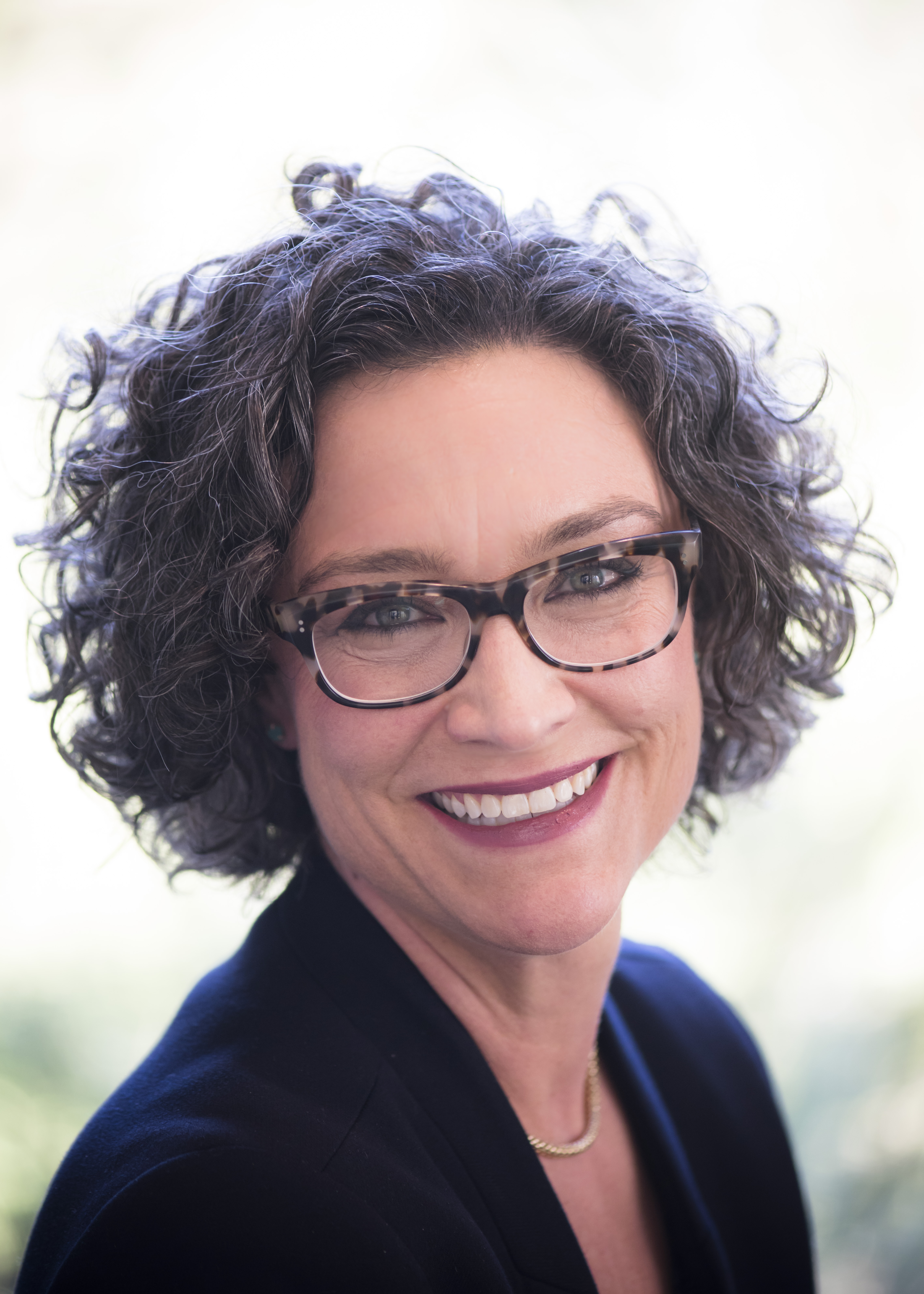 Sincerely,
Sincerely,
Elizabeth Cowell
Richard L. Press University Librarian
Presidential Chair
Filling in the Gaps: Vendors, Libraries and Donors
While uniquely positioned to support many collection needs in an online environment, the ramp-up to all online, all the time has presented unexpected collection support challenges for the University Library. We subscribe to a wide array of eBooks, ejournals and databases, but we don’t own every title that a member of the campus community might need. Some standard services, like Interlibrary Loan, are actively filling requests for our eBooks and ejournals, but our print books and DVDs are not yet lendable.
Into the breach have stepped the California Digital Library, vendors, myriad publishers, and supportive library donors. To support online lab classes, the California Digital Library paid to supplement existing campus licenses so that all UC campuses could have access to the full suite of JoVe database (Journal of Visualized Experiments) titles through June 2020. Our main ebook vendor, Proquest, worked with over 100 publishers to expand their eBook agreements to allow unlimited access for students, faculty, and staff to books the library owns and/or purchases between now and June 2020. JSTOR opened up access to eBook collections UC Santa Cruz does not currently subscribe to through June 2020. Students and faculty now have access to more eBooks and databases than they did at the start of the academic year thanks to these temporary access programs.
One area has required more creativity and investment to support remote education: Streaming media. Many streaming media sources, like Netflix, are designed to support the home user. No one vendor can meet the campus’s needs. Getting faculty access to the films they need to teach has been the greatest challenge for the library.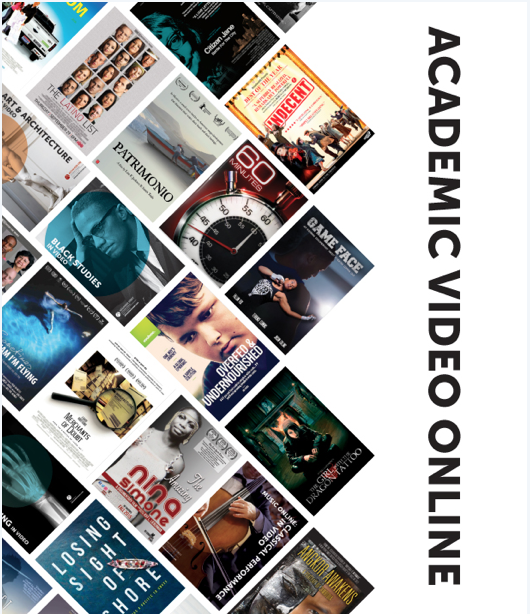
To meet as many remote teaching support needs as we could in this area, the University Library subscribed to Swank Digital Campus Top 1,000 titles for one year. This has been a great support for classes, temporarily duplicating a portion of our Media collection and making available 1,000 titles to the whole campus for unlimited use through March 2021. The University Library accepted Proquest’s offer of a free extended trial (June 2020) of Academic Video Online (AVON). Due to the generosity of two donors, Jim Gunderson and Peter Coha, the library has bridged the funding gap needed to license Academic Video Online (AVON) for the next three years. AVON will make close to 70,000 streaming videos accessible to the campus community, supporting classes across the disciplines.
To support remote education requirements, some solutions will be long-term, some will last until the campus is fully open. All will be needed to keep faculty and students resourced for their teaching needs. Generosity and creativity in finding temporary solutions across the academic community have been key to our efforts.
The (Virtual) UC Library is Open!
In partnership with the California Digital Library and other campuses throughout the UC, the library is excited to provide access for UC Santa Cruz students, faculty and staff to all digitized books in HathiTrust that are also physically held by any UC library For those unfamiliar, HathiTrust Digital Library preserves and provides access to material scanned by Google, some of the Internet Archive books, and some books scanned locally by partner institutions. The HathiTrust Emergency Temporary Access Service (ETAS) is a new program that opens up copyrighted material in their digital library to member institutions with copies of those items in their physical collections. There are currently 17 million items in HathiTrust, many of which are still under copyright. Through ETAS, UC students, faculty, and staff now have access to roughly 75% of the HathiTrust corpus, or nearly 13 million items.
The library is fac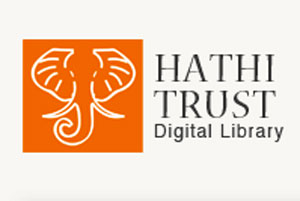 ilitating connecting with these resources in several ways. For users searching our library collection, there is now a link that carries the search into HathiTrust. Our Research Support Services department has had success locating items in HathiTrust to aid researchers during consultations, and our Interlibrary Loan department is using HathiTrust as a way to fulfill loan requests when appropriate. Statistics reflect that users are connecting with these resources. Since the program has been in place, we have tracked an increase systemwide of over 47% in pageviews over 28 days.
ilitating connecting with these resources in several ways. For users searching our library collection, there is now a link that carries the search into HathiTrust. Our Research Support Services department has had success locating items in HathiTrust to aid researchers during consultations, and our Interlibrary Loan department is using HathiTrust as a way to fulfill loan requests when appropriate. Statistics reflect that users are connecting with these resources. Since the program has been in place, we have tracked an increase systemwide of over 47% in pageviews over 28 days.
Once a user has activated a temporary loan, they will have 60 minutes of access to an in-copyright book and remaining active in the book during the session extends access time. Users may read the book online in an active session while using HathiTrust, but can download only one page at a time. This access model is intended to protect author’s rights, while addressing the unique access needs of this moment.
It is important to note that this is a temporary service. Emergency access will end when regular access to the University Library’s physical collection is restored. Read more about HathiTrust from the University of California.
Digital Scholarship Commons: Integrating thoughtful Zoom Settings into Online Workshops
COVID-19 has also led to many people taking up Zoom as a way to connect, teach classes, hold workshops, etc. Therefore, at the beginning of week 3 in the quarter, the Digital Scholarship Commons held a workshop to help our patrons, as well as all Library staff, use Zoom safely and effectively. Specifically, we wanted to address what makes a good online Zoom workshop and how we balance security needs with accessibility. The library has been involved in University conversations around online instruction. (Additional Campus-wide recommendations on the use of Zoom can be found in the ITS Zoom recommendations, security recommendations to keep Zoom private, and the Center for Innovative Teaching and Learning's Zoom for Teaching set of tools.)![]()
Though many of us are used to digital tools, the philosophy behind online education is still new for some. The workshop we held for our library community and our departmental implementation of Zoom was focused around creating a consistent and meaningful online learning experience, and making sure that our use of Zoom is safe and secure. The effort led to a number of guidelines, of which some are included below.
The guidelines we developed and shared with our audience focused on balancing the need for access with the need for security. Our hope is that these guidelines will protect our faculty and students from bad actors, such as the so-called “Zoom bombers” etc. The table below lists some of the security measures we put into place along with the reasoning behind those decisions:
| Zoom Setting | Reasoning |
| Add Registration and Waiting room controls. Use an automatically created ID to have a new ID for each meeting. Disable “Join before host.” | These options provide security against random access and allow us to screen participants before they join, creating a barrier for bad actors who plan to just jump in and out of a meeting. |
| Have a second person moderate. This person moves people into the meeting from the waiting room, watches the chat for questions, and supports technical issues for attendees. | This allows our speaker to focus on the presentation and encourages interaction through chat for participants when recording. |
| Record the meeting. | Technological abilities for our faculty and students vary greatly at this time. Recordings allow for people to view the workshop at a later date if they are unable to use Zoom. |
| Provide breaks in the recording mid-presentation as well as an unrecorded discussion at the end. | We hope to encourage participant interaction by creating a place for them to ask questions without feeling the pressure of being recorded. |
| Video and Audio are set to off on entrance. | This puts the decision in the workshop participants' hands about whether or not they want to share their audio or video with the larger group and protects their individual privacy during the recorded parts of the workshop. |
Publishing on the Eve of a Pandemic
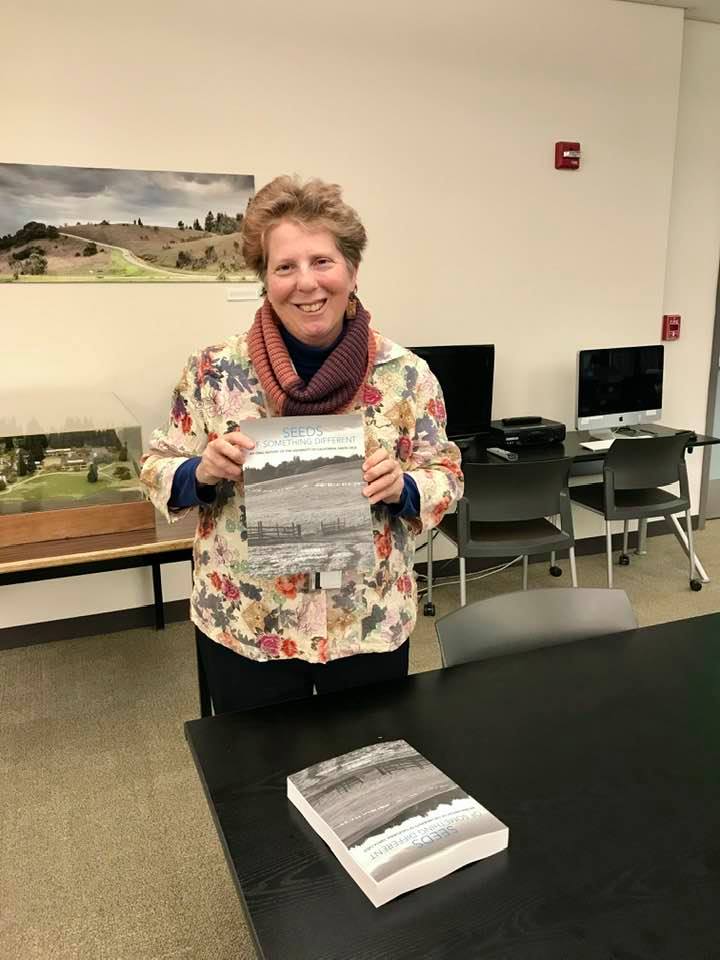 When Regional History Project director Irene Reti began editing Seeds of Something Different: An Oral History of the University of California, Santa Cruz five years ago together with her co-editors Cameron Vanderscoff and Sarah Rabkin, she never dreamed that SEEDS would be published on the eve of a pandemic. Two huge pallets carrying the two-volume, 925 page illustrated book arrived just a week before the University Library closed indefinitely, literally a ton of freight! The book launch celebration, which was planned to take place as part of UC Santa Cruz’s Alumni Weekend on April 4, 2020, was abruptly and painfully canceled. Soon we were all sheltering in place; there was no mailroom, and Reti found herself working at home with her very happy cat.
When Regional History Project director Irene Reti began editing Seeds of Something Different: An Oral History of the University of California, Santa Cruz five years ago together with her co-editors Cameron Vanderscoff and Sarah Rabkin, she never dreamed that SEEDS would be published on the eve of a pandemic. Two huge pallets carrying the two-volume, 925 page illustrated book arrived just a week before the University Library closed indefinitely, literally a ton of freight! The book launch celebration, which was planned to take place as part of UC Santa Cruz’s Alumni Weekend on April 4, 2020, was abruptly and painfully canceled. Soon we were all sheltering in place; there was no mailroom, and Reti found herself working at home with her very happy cat.
Yet despite these considerable hurdles, Seeds of Something Different has nearly sold out of its first printing! How is this possible? Reti first hastened to pack and ship all of the preorders of SEEDS, with the help of the industrious members of Library Operations. They were mailed just before the library closed. She and her graduate student fellow, Alessia Cecchet, who has been working with Reti for the past few years selecting and scanning visual material and creating the accompanying website for SEEDS, loaded heavy cartons of books into Reti’s Subaru and drove them to Bay Tree Bookstore and Bookshop Santa Cruz, where they were readied for sale.
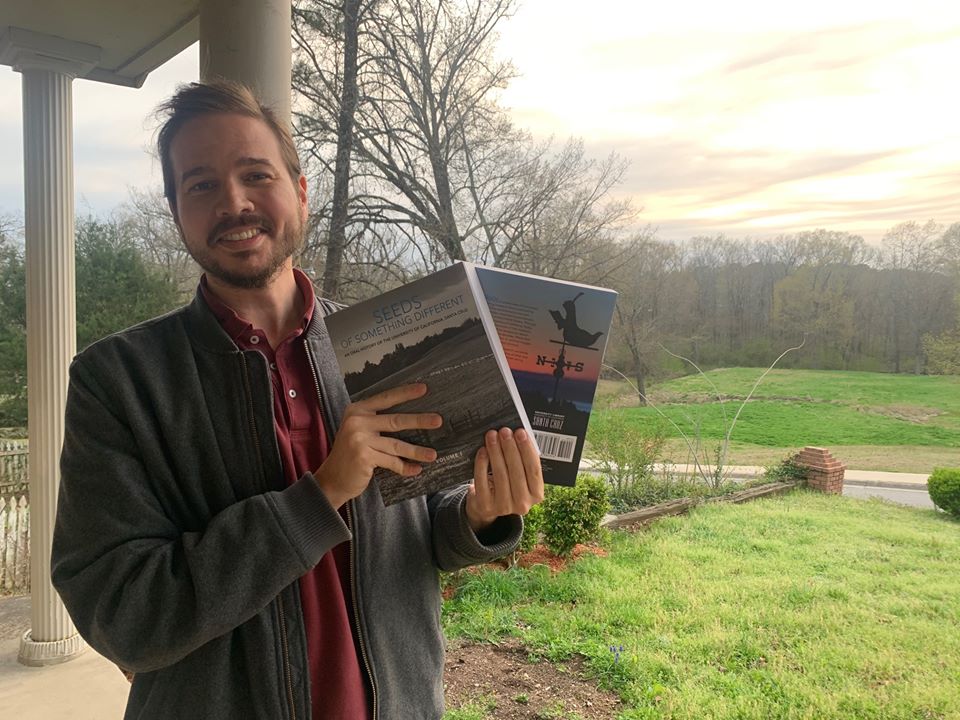 Bookshop Santa Cruz then became an extraordinary partner in distributing over 100 copies of SEEDS in the past month, mostly through online sales. Reti and her director of Special Collections and Archives, Teresa Mora, have made numerous trips to Bookshop in the past month to deliver more boxes of SEEDS. Vanderscoff, who lives in New York City, appeared twice with radio host Richard Eeds on Santa Fe's, New Mexico’s Talk KTRC 1260!
Bookshop Santa Cruz then became an extraordinary partner in distributing over 100 copies of SEEDS in the past month, mostly through online sales. Reti and her director of Special Collections and Archives, Teresa Mora, have made numerous trips to Bookshop in the past month to deliver more boxes of SEEDS. Vanderscoff, who lives in New York City, appeared twice with radio host Richard Eeds on Santa Fe's, New Mexico’s Talk KTRC 1260!
And it turned out a SEEDS book launch was possible after all! Santa Cruz writer and book artist Jory Post, invited the editors of SEEDS to do a virtual book launch as part of his Zoom Forward! series sponsored by Bookshop Santa Cruz, Phren-Z Magazine, Poetry Santa Cruz, and The Hive Poetry Collective. On Friday, April 10, over 200 people from far and wide attended this book launch with a lively question and answer period following the reading.
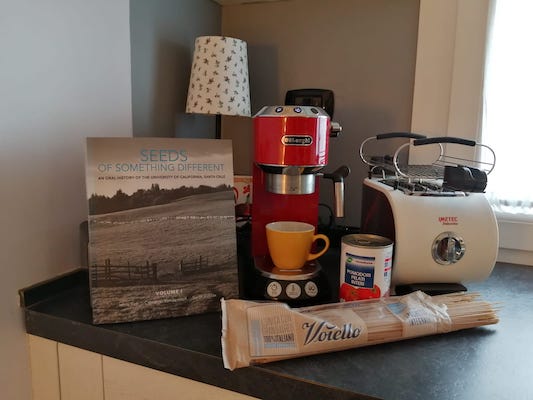 We are hearing from readers across the United States and beyond who are hunkered down in their homes and finding comfort in memories of UCSC. SEEDS is only beginning to find its audience. We are now planning a reprint!
We are hearing from readers across the United States and beyond who are hunkered down in their homes and finding comfort in memories of UCSC. SEEDS is only beginning to find its audience. We are now planning a reprint!
To listen to the audio recording of the virtual (Zoom) SEEDS Reading, order the book from Bookshop Santa Cruz or Bay Tree Bookstore, peruse the SEEDS exhibit website, and much more see: https://tinyurl.com/ucsc-seeds
Explore Seeds and Where to Get your Copy
UC Santa Cruz's Regional History Project is proud to announce the publication of Seeds of Something Different: An Oral History of the University of California, Santa Cruz, a masterful two-volume history weaving together first-person accounts of the campus's evolution, from the origins of an audacious dream through the sea changes of five decades. More than two hundred narrators and a trove of archival images from Special Collections & Archives contribute to this dynamic, nuanced account.
Explore SEEDS!
- Visit the SEEDS Companion Website to see more images and other archival material not in the book, as well as audio recordings and links to other resources
- Watch a slideshow of images from SEEDS!
- Read the preface of SEEDS online
- Learn more about the Regional History Project's oral histories
How to purchase your copy: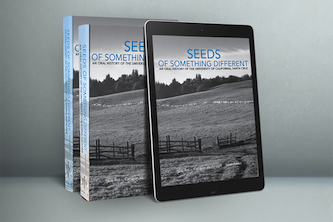
Bookshop Santa Cruz: purchase and pick up your copy in person or order from Bookshop Santa Cruz online and have it shipped to you directly
Bay Tree Bookstore at UC Santa Cruz: purchase and pick up your copy in person or order from Bay Tree Bookstore online and have it shipped to you directly
Ebook edition available via Amazon for Kindle (each volume is $9.99)
◦ Volume I of Seeds of Something Different
◦ Volume 2 of Seeds of Something Different
Science and Engineering Library Renovation
The long awaited renovation of the upper level of the Science & Engineering Library opened to the public on Friday, January 10th, 2020. It quickly became a very popular study destination on Science Hill.
This astronomy-themed floor is named in honor of Professor Emerita Sandra M. Faber. It features a variety of furniture from traditional private carrels to comfortable lounge chairs, from study booths for two to a 60’ laptop bar, from four new group study rooms, to a large collaboration zone with furniture tha t can flex to meet the needs of many different groups. There is something there for every student’s study need.
t can flex to meet the needs of many different groups. There is something there for every student’s study need.
One thing students told us that they were really looking for in a study space was a convenient place to plug in. We gave them that in abundance. In fact, students plugged in so much that they quickly overwhelmed the capacity of our wireless network. We quickly responded by working with our partners in ITS to upgrade the network on that floor within a few weeks.
Another thing students asked for was lots of surface to write on. Each one of our four group study rooms has a 15’ marker wall. The back of the laptop bar provides another 60’ of marker wall for the collaboration zone. Eighteen reading carrels and two three-person study pods feature wraparound writing surfaces. All of these options are very well used.
We also worked hard to make the environment more comfortable and appealing. We were able to replace two of the building’s air handling units, improving the airflow for the entire building. We replaced the acoustic ceiling tiles and the carpeting, and added two new gender-neutral bathrooms. We were in the process of installing some beautiful photographs taken by the Hubble Space Telescope when the shelter at home order made us suspend operations.
We appreciate the generous gift that made this renovation possible and we look forward to a time when we can invite you all in to experience it in person.
"Hi there. I am Danny Scheie, a Professor of Theater here at UCSC, and I must give a tremendous heap of praise to the library for its help in getting my Shakespeare course online in a good fashion this quarter. I’d like to especially call out Kerry Scott and Dan Chen and whomever works with them. They have been amazing; all the beloved materials which I own and have used for thirty years they somehow found and got online within days and sometimes hours of my request. You have my eternal gratitude and we are indeed lucky to have such fantastic library personnel."
An Easy Way to Support the UC Santa Cruz Library
If you're looking for a tax-wise strategy to make gifts to the Library, consider making an IRA Charitable Rollover. If you're age 70 ½ or 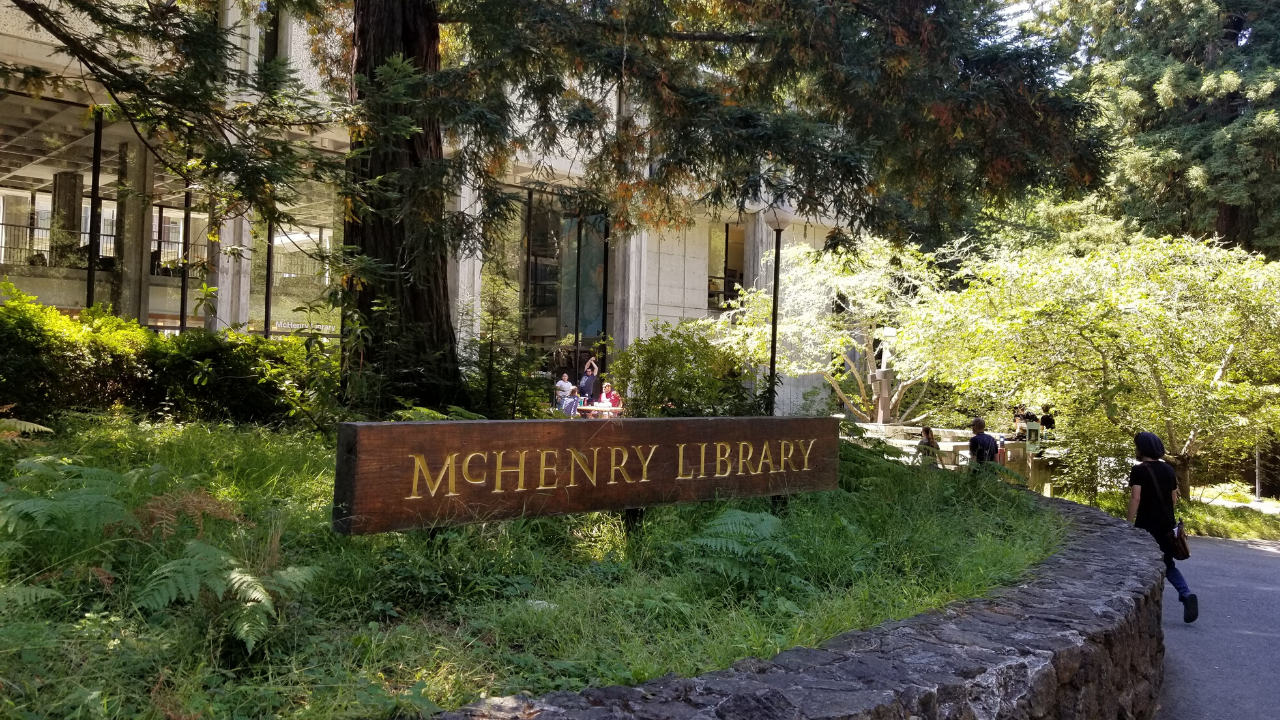 older, you can use your Individual Retirement Account to support the UC Santa Cruz University Library. Any amount you transfer will count against your required minimum distribution, meaning it won't be counted as taxable income this year, thus reducing your tax burden. Making a gift through an IRA rollover helps you make a significant impact with minimal effort
older, you can use your Individual Retirement Account to support the UC Santa Cruz University Library. Any amount you transfer will count against your required minimum distribution, meaning it won't be counted as taxable income this year, thus reducing your tax burden. Making a gift through an IRA rollover helps you make a significant impact with minimal effort
If you'd like to learn more about Charitable IRA rollovers, or how you can maximize your giving through non-cash gifts like your retirement accounts, real property, or investments please contact the Office of Planned Giving at gift.planning@ucsc.edu or (831) 459-1045.
Have you included the University Library in your estate plan? Please Let Us Know if the library is part of your will or trust so we can ensure that your future donation is honored, and your legacy lives on, in the precise manner you wish. All you have to do is tell us!
Credits:
Contributors: Elizabeth Cowell, Zoe Quinton, Kerry Scott, Irene Reti, Sarah Lindsey, Greg Careaga and Kristy Golubiewski-Davis Production: Linda Hunt
Copyediting: Greg Careaga and Jessica Pigza
Photography: Linda Hunt, Irene Reti, Greg Careaga, Donatella, Clare Henjum, UCSC Photo Collection and Carolyn Lagattuta


 Santa Cruz, CA
Santa Cruz, CA



